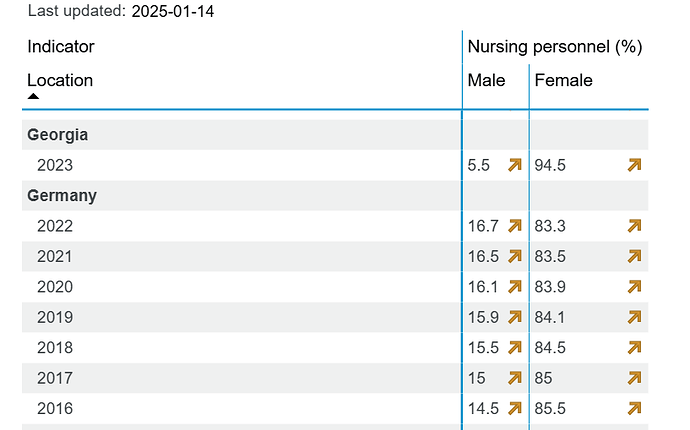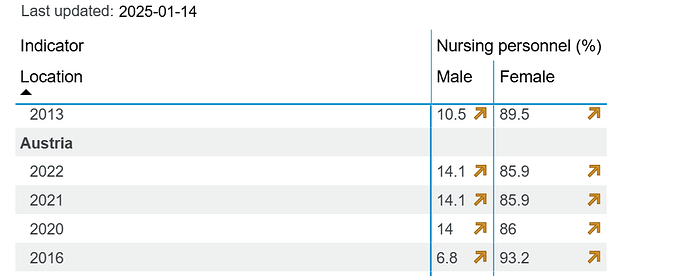According to the German Wikipedia page, the use of Krankenschwester and Krankenpfleger as professional titles are regulated by a 1957 law, and since then Krankenschwester is a legally protected professional title in Germany (second paragraph of the section Zur_Anrede_„Schwester“) -
Krankenpfleger – Wikipedia
The page does not mention Krankenpflegerin, and so this suggests that Krankenschwester is the official term for female nurses (and Krankenpfleger for male nurses).
Now for a bit of fun to test your hypothesis on whether it is a little outdated and sexist.
When these word comparisons come up I follow @morbrorper’s lead and use Google Ngrams, which shows the change in time of usage of a word or phrase in books.
For this one, I chose 1850 as the start date (emergence of nursing in Crimean War, Florence Nightingale, founding of L’Institut et Haute École de la Santé La Source etc.).
I compared Krankenpfleger, Krankenpflegerin and Krankenschwester and the result is here -
Google Ngram Viewer: Krankenpfleger,Krankenpflegerin,Krankenschwester
So in books, it appears that initially Krankenpfleger/in (combining both forms) was the preferred term, and then that changed just after the end of the second world war to be Krankenschwester. Since then, the dominance of Krankenschwester has increased, and today (well, in 2022 actually) it is about a 5 to 1 ratio in favour of Krankenschwester over Krankenpfleger/in in books.
With a ratio of 20 to 1 in favour of Krankenschwester over Krankenpflegerin, it certainly appears as though (in books) Krankenschwester is the preferred term for lady nurses.
As Google Ngrams looks at occurrences in books, I have no idea whether there is a difference in spoken German, hence we can now wait to see whether one of our wonderful German native speakers or experts can give us real insights into modern German usage, and any cultural aspects around whether Krankenschwester is seen as a little outdated and/or sexist.
P.S.
As an aside, I checked the WHO report on gender ratios in nursing.
Nursing personnel by sex (%)
As can be seen, the current ratio of female to male nurses in Germany is 5 to 1 (and in Austria it is about 6 to 1). The combination of Krankenschwester/Krankenpflegerin versus Krankenpfleger in the Ngrams results is between 6 to 1 and 7 to 1. Hence, there is a reasonable correlation between the gender ratio in nursing in the two main German speaking countries and the occurrence of gendered terminology in books.

